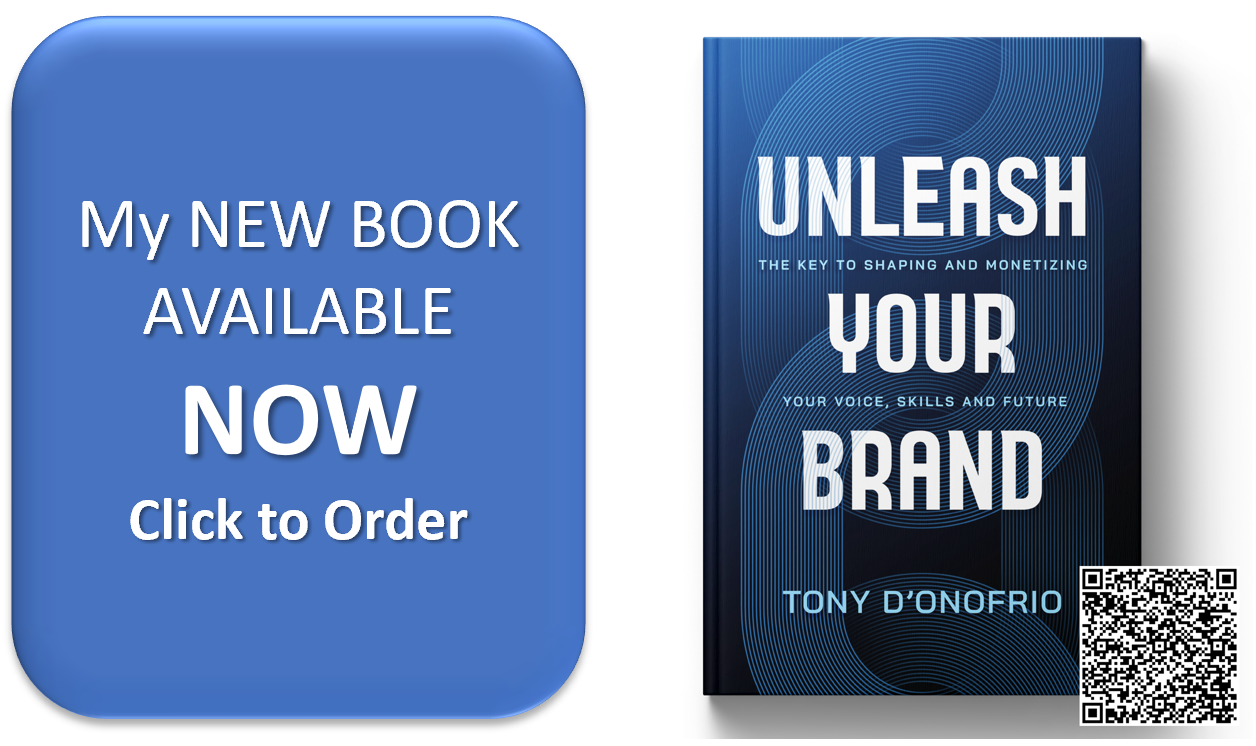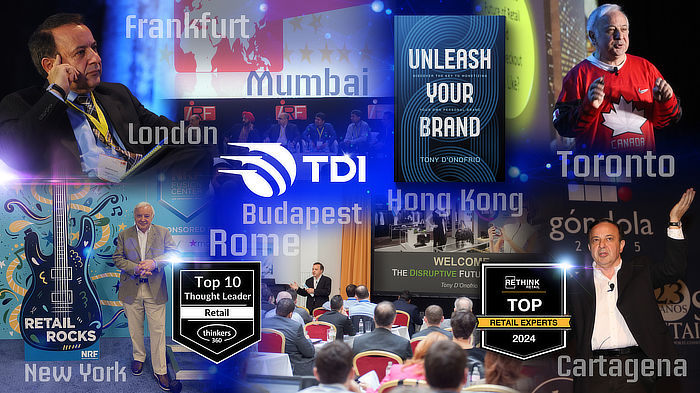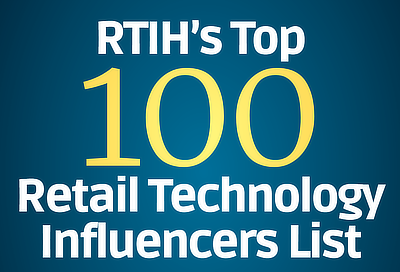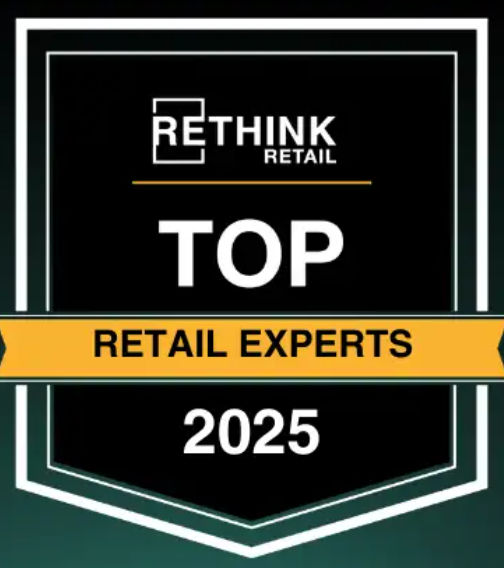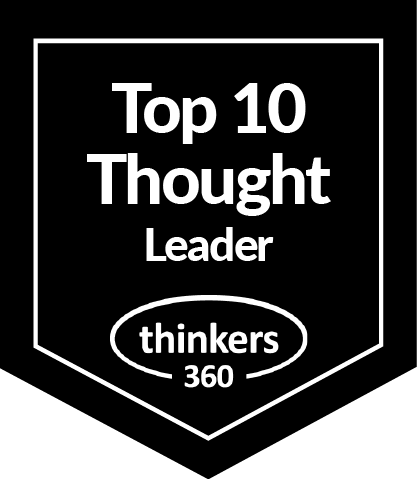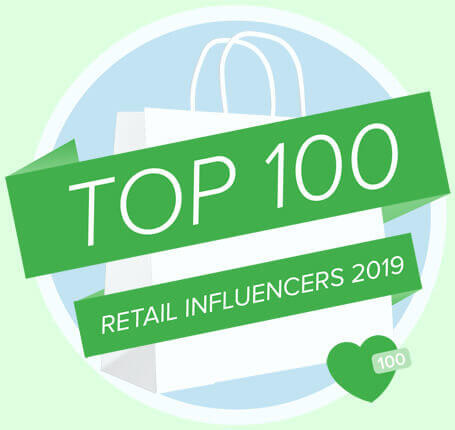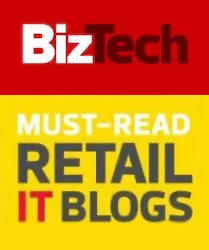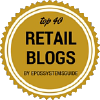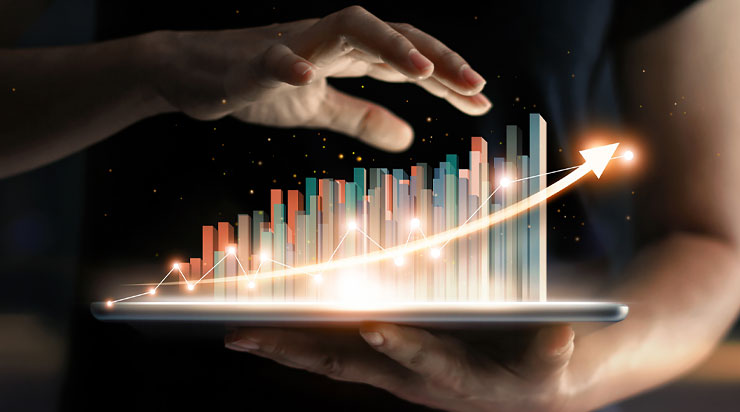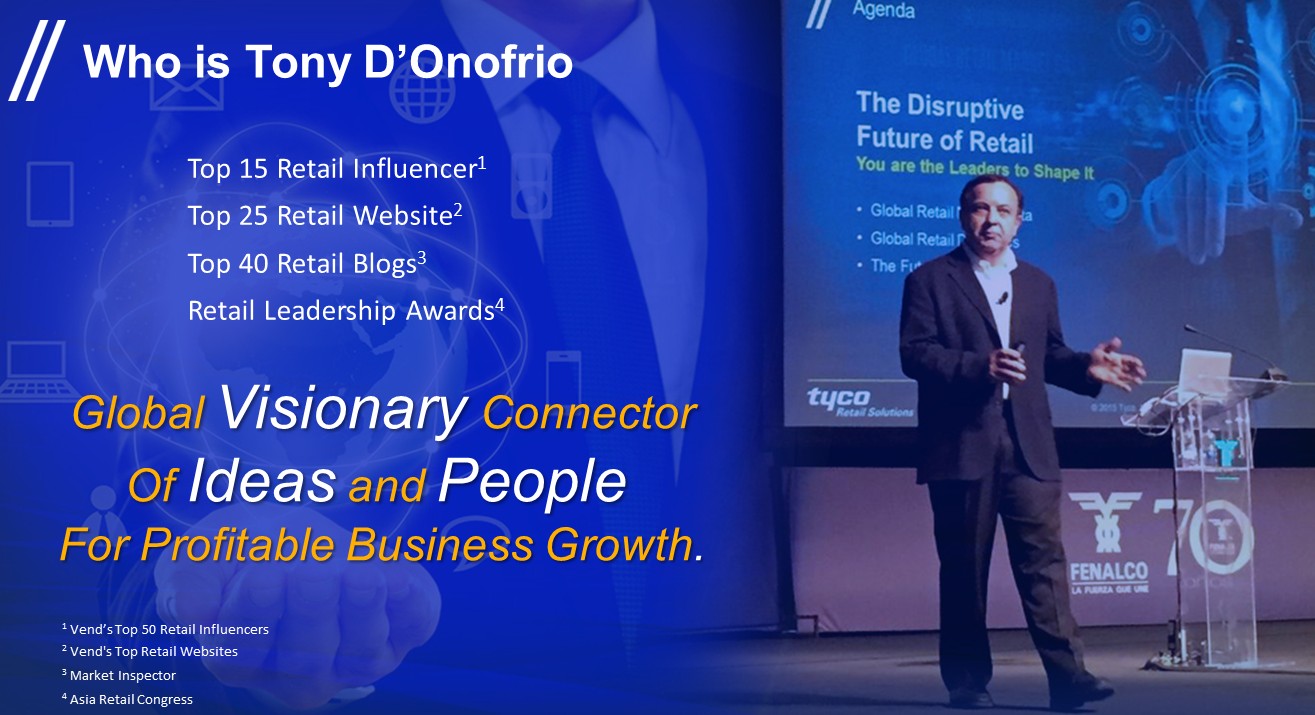
Two weeks ago, had the pleasure of speaking to the Board of Directors at two major Brazil apparel retailers. An updated view on "The Disruptive Future of Retail" was the message. Very pleased that audience was engaged, embracing of the disruptive trends discussed, and had lots of questions on their direct impact in the Brazil retail market.
The Disruptive Future of Retail
- The retail industry is a vibrant sector just getting started on its next generation journey. We are all shoppers. New markets are emerging every day. Globally retail is a $13.6 trillion industry sector. The fastest growing market is Middle East / Africa at 5.7%. Slowest region is Western Europe at 1.3%. Online is the fastest growing channel at 12%.
- Apparel is the fastest growing and most profitable retail sector. Deloitte reported growth of nearly 7% and profit margins of 8%. Although apparel companies are relatively smaller in size, the sector is the most global with 85% operating internationally.
- Always look forward to the "Q Ratio" top ten lists of retailers from Deloitte. The Q Ratio analyzes public companies market capitalization to the value of tangible assets. Key attributes that drive a ratio greater than one include brand equity, differentiation, innovation, customer experience, market dominance, customer loyalty, and skill execution. The Q Ratio is all about building and augmenting the value of the brand. At the core of the future of retail is a robust consumer passionate recognized brand.
- Technology is a key differentiator that will drive increased value for retail brands. Progressive retailers are correctly focusing on investments that get them closer to their customers. In latest IHL/Gartner Store Systems study the top three technology focus areas are advanced CRM/loyalty, mobile for associates, and BI/Analytics.
- After World War II, starting in Western markets, the retail industry has transitioned through three major megatrends. Technology and more specifically the concentration of data have driven the transformation of retail. We are well in the middle of the third megatrend re-shaping the future of the retail with the connected mobile consumer taking charge of the shopping journey.
- The pace of change is accelerating and new technologies have a much shorter adoption cycle. Retail markets around the world will bypass linear technology cycles. Countries such as China and India are adopting new technology models at an unprecedented pace and will leap frog trends in the Western world.
- Retail technology sectors are blurring with traditional solutions initially focused to solving one problem morphing into data gathering devices leading to a smarter store. This is especially prevalent in the convergence of loss prevention and IT technologies.
- The number of sensors entering retail will explode. The Internet of Things is one of the key baseline technology strategies that will drive the future of retail.
- A technology empowered sales associate is the secret weapon to building strong brands. Sales associates are the intermediary brand ambassadors between the consumer and retail management. We are reaching a tipping point where the technology conversation may get too personal. Achieving the proper balance is critical to brand value.
- In this apparel focused presentation, four sample retailer trend setters were discussed: Nike, Inditex, H&M, and Fast Retailing. All four are focused on innovation, increased speed, globalization of the brand, and sustainability - all key attributes for the bright future of this sector.
The Brazil Retail Market
Brazil retail sales decreased 5.5% in August 2016 over the same month last year. Retail sales in Brazil averaged 4.04% growth from 2001 to 2016, reaching all-time high in March 2010 of 15.7%.
"For most of the past decade, up until a couple years ago, Brazil enjoyed a dramatic boom in consumption. Thirty-five million Brazilians - 18% of the population - ascended to the middle class. As of 2012, Brazil's middle class encompassed 115 million people, or more than half of all Brazilians."
Consumer confidence is at an all-time low in the country and the lowest of 26 countries surveyed by McKinsey. Only 8% of Brazilians were optimistic about the national economy. The same study brought to light five consumer behavioral shifts: pro-actively searching for savings; remaining loyal, but only at the right price; potentially trading down and not coming back; splurgers in selective categories; and shopping across channel.
The Brazilian economy will return to modest positive rates of expansion in 2017. Real GDP will likely expand 1.7% in 2017, following an economic contraction of 3.1% estimated for 2016.
The Four Key Questions to Ask
Brazil will come back as a powerful retail force in the global economy. This was reflected in the energy and engagement of the multiple retail Board of Directors that I met in Brazil.
"To seize retail opportunities today, step one is to stop reacting. The old adage is still true: the best defense is a good offense. However, before creating the offense playbook and seeking answers through technology, it is important to ask business leaders four key questions:
- What do our customers expect from us now and in the future?
- What does the organization do exceptionally well?
- What is our biggest weakness?
- What would you do to disintermediate us?"
Retail disruption, driven by technology, will accelerate. The physical store will remain a key important element of the retail success formula. An engaged sales associate is the secret weapon. A bright future is ahead for the global retail industry.


